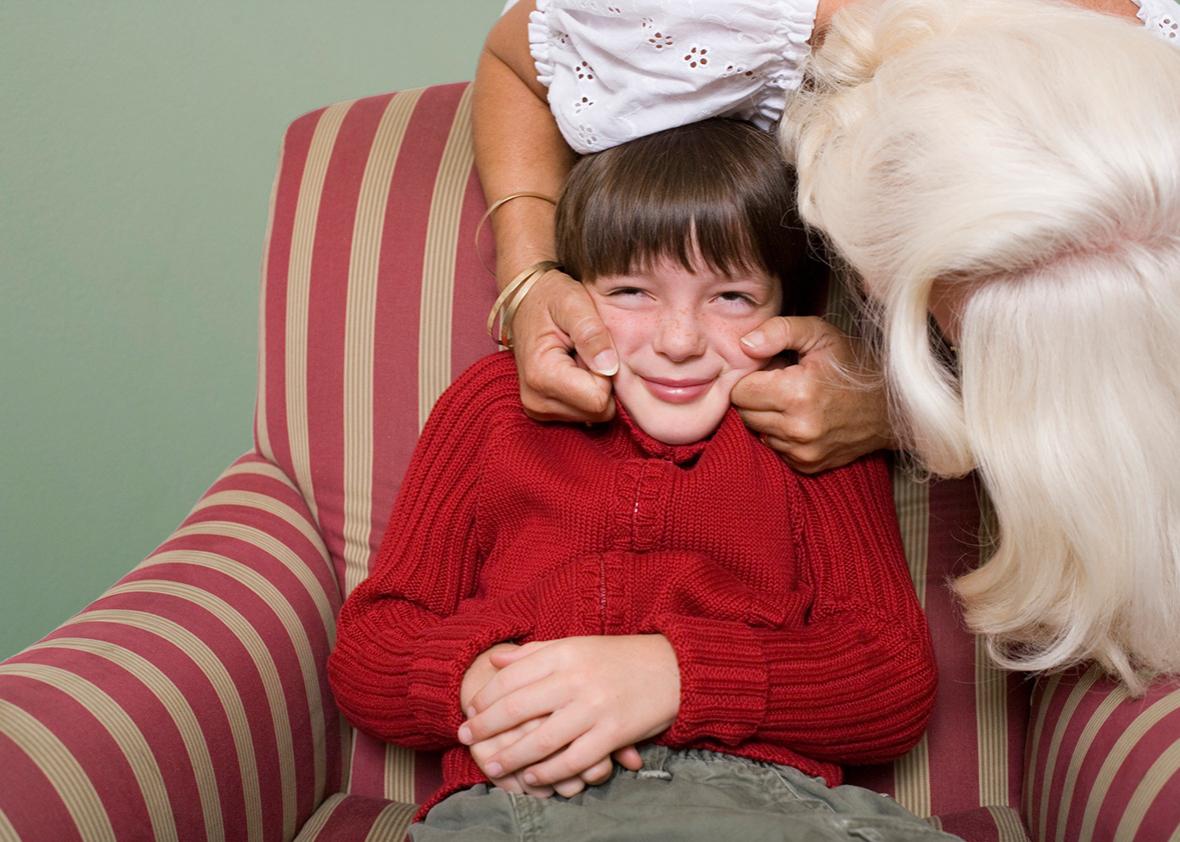Romper, a website for millennial parents, recently ran a story listing the “10 Things Feminist Moms Do Differently Than Other Moms.” Overall the advice is familiar: avoid gender norms, be supportive of other moms, etc. But there’s one suggestion that this particular feminist mom has never heard before. Feminist moms, I learned, “don’t make our children hug or kiss anyone they don’t want to.”
The writer Jamie Kenney explains that “if we want to get everyone on the same page about consent, that needs to start young.” The thinking here, which appears to be on the rise, is that by forcing unwilling children to hug Great Aunt Edna, we are teaching them that they don’t have bodily autonomy. Yield to their objections, on the other hand, and we are teaching them that they can and should speak up when they feel discomfort with physical intimacy.
I’ll come right out and say it: I make my 3-year-old son hug people all the time. I was raised to believe that our responsibility to others is sometimes expressed through our bodies; sometimes that means hugging and kissing relatives, even when we’d rather not. Children can be fickle, and that’s when they’re not being total jerks. Allowing them to follow their social instincts would pave the way for a lot of uncomfortable moments and hurt feelings. They just don’t always know better.
Luckily, many of them have parents who do, and will nudge them toward a relative for a hug or kiss even if they resist. Sure, the child’s efforts might lack sincerity, but much of what children do is mimicry or a performance. Childhood, including puberty, involves some going through the motions before you understand how emotions work. (And it continues after childhood: Most marriages and adult friendships entail a bit of grinning and bearing it, too.)
Still, the instinct to teach children that they have the power to say no is understandable. Children are far more likely to be sexually abused by someone they know as opposed to a stranger. Following a long and ugly tradition of ignoring such abuse, it makes perfect sense that parents would use whatever tools available to try to protect their children.
“We need to help kids understand their gut instincts,” says Lisa Fiore, a professor of psychology at Lesley University. “Too often we teach them to ignore the things that make them comfortable. If you are conditioned to have contact against your will, you don’t understand boundaries.”
Fiore suggests hearing out children who resist hugging relatives, but not necessarily letting them call the shots. “You can give them other options, like giving a high-five,” she says. “Or let it go this time and try again in the future.”
“Parents want there to be one way to handle these kinds of situations, but there’s not,” says Tovah Klein, director of the Barnard College Center for Toddler Development and author of How Toddlers Thrive. One of the most important things parents can do in an awkward situation, Klein says, is to model physical affection for their children, which will help them figure out what kind of hugging and kissing is expected and appropriate.
Niobe Way, a professor of applied psychology at New York University, says the big worry for children today is social isolation; giving them a pass on hugging and kissing might be exactly what most children don’t need.
“The American obsession with personal autonomy and the individual—this valuing of the individual over the community—is pushing us to raise kids to act in ways that goes against their nature,” Way says. “They’re meant to be emotional beings, to connect with other people, not stay away from them.”
Loneliness is on the rise, with 40 percent of adults in recent surveys reporting they were lonely, up from 20 percent in the 1980s. A study from two years ago found that the number of Americans who get together for the holidays has declined, as has the number who buy presents, send cards, and bake goods for others. This decline in community is not just depressing; it’s dangerous. More people die from loneliness than obesity.
In combatting isolation, physical touch matters. Researchers have found that we are not so different from our primate ancestors—who spend 10 to 20 percent of their day grooming one another—in our need for physical affection. Touch is crucial for maintaining social bonds. “I don’t see how it’s the feminist thing to do to raise a bunch of lone cowboys, who are taught to stay away from others and operate on fear,” Way says.
I don’t, either, which is why this Christmas my toddler will be frequently nudged to say hello and goodbye to relatives with a hug. He might resist, and I might give in, but it won’t be without giving everyone a big hug myself, and telling him that I hope he does the same next time.
